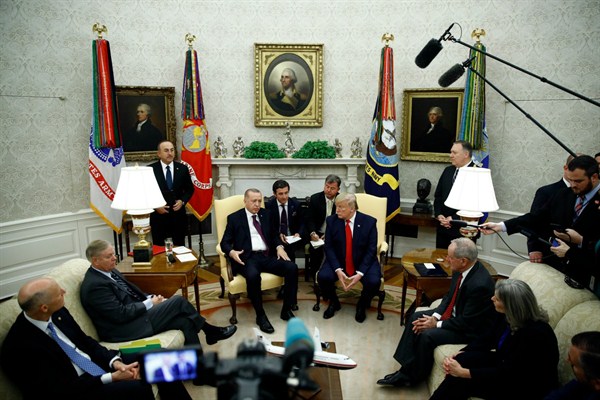Last week’s White House meeting between President Donald Trump and Turkish President Recep Tayyip Erdogan included plenty of compliments and praise—mostly one way, from Trump to Erdogan—but it failed to resolve the most serious issues hampering U.S.-Turkey ties. Trump, as usual, created some theater by inviting five Republican senators who take a much tougher view on Turkey to press Erdogan about the recent Turkish invasion of northern Syria and attacks on Kurdish forces allied with the U.S. in the fight against the Islamic State, until Trump abandoned them. Erdogan reportedly responded by showing the senators an anti-Kurdish propaganda video on an iPad he’d brought into the Oval Office.
The scene was revealing in how it underscored the wide gap that exists between Congress and the White House when it comes to ties with Ankara. But Trump’s instincts may not be the final word. This gap is not unique to the Trump era but part of a long trend in Washington, in which the executive branch looks at Turkey through a security lens, while Congress is more likely to consider human rights, governance and other issues when it considers the bilateral relationship.
Consider the three most acute issues between Washington and Ankara. Two have important security consequences for the United States: Turkey’s purchase of Russian S-400 anti-aircraft missiles, putting Turkish participation in the F-35 fighter jet program in jeopardy, and its invasion of northern Syria to displace U.S.-backed Kurdish forces from a “buffer zone” along the Syrian border. The third relates to the erosion of democratic governance in Turkey, particularly since the 2016 attempted coup, and the ensuing purge of thousands of Turks from civilian, judicial, military and academic institutions and sharp contraction in press freedom.

